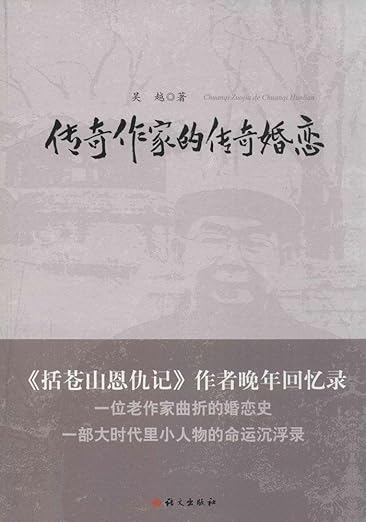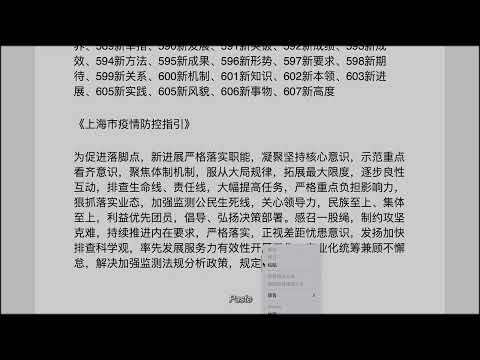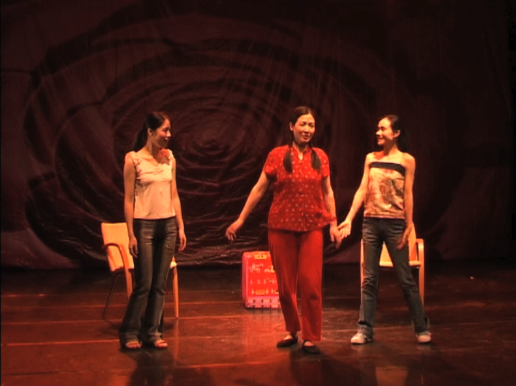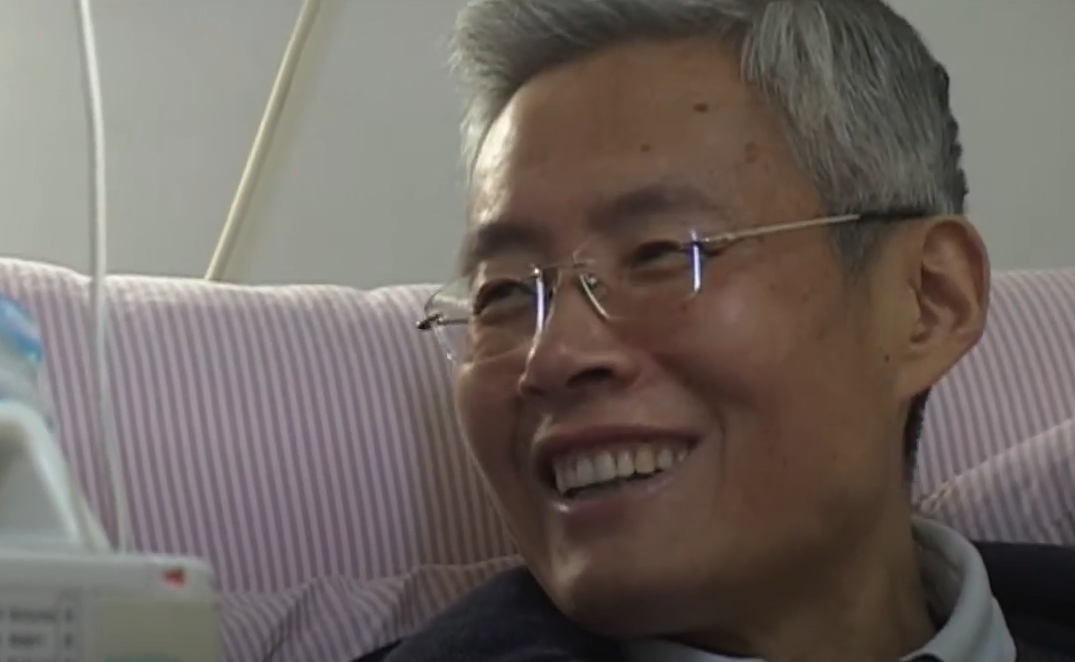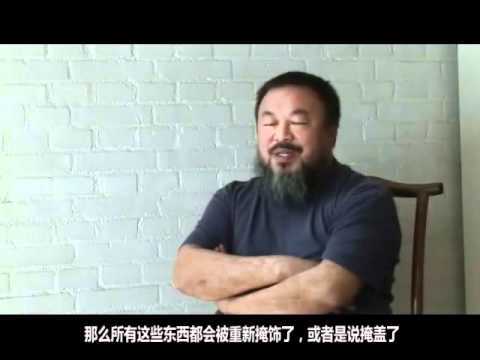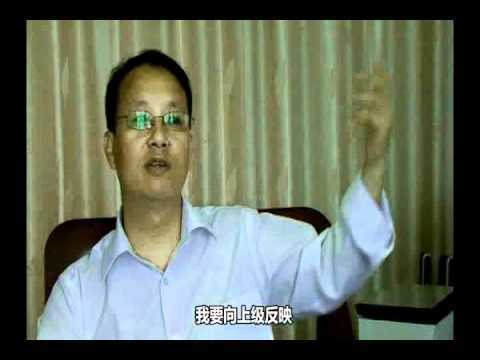Explore the collection
Showing 136 items in the collection
136 items
Periodicals
Spark, Issue 1
<i>Spark</i> was an underground magazine that appeared in the Tianshui area of Gansu Province in northwestern China during the 1959-1961 Great Famine. The magazine was lost for decades but in the late 1990s began to be republished electronically, becoming the basis of documentary films, essays, and books.
In 1959, the Great Famine was spreading across China. It was witnessed by a group of Lanzhou University students who had been branded as Rightists and sent down to labor in the rural area of Tianshui. They saw countless peasants dying of hunger, and witnessed cannibalism.
Led by Zhang Chunyuan, a history student at Lanzhou University, they founded <i>Spark</i> in the hope of alerting people to the unfolding disaster and analyzing its root causes. The students pooled their money to buy a mimeograph machine, carved their own wax plates, and printed the first issue. The thirty-page publication featured Lin Zhao's long poem, "A Day in Prometheus's Passion." The first issue also featured articles, such as "The Current Situation and Duty," which dissected the tragic situation of society at that time and hoped that the revolution would be initiated by the Communist Party from within.
The students planned to send the magazine to the leaders of the provinces and cities with a view to correcting their mistakes. But before the first issue of Spark was mailed and while the second issue was still being edited, on September 30, 1960, these students in Wushan and Tianshui were arrested, along with dozens of local peasants who knew and supported them. Among them: Zhang Chunyuan was sentenced to life imprisonment and later executed; Du Yinghua, deputy secretary of the Wushan County Committee of the Chinese Communist Party, was sentenced to five years' imprisonment for having interacted with the students, and later executed. Lin Zhao was detained and also executed. Other key members, such as Gu Yan, Tan Chanxue, and Xiang Chengjian, were all sentenced to long years in labor camps.
In the 1990s, Tan Chanxue devoted herself to researching historical information and figures to bring this history to life. She found in her personnel file (<i>dan'an</i>)photographs of the magazine, as well as self-confessions and other evidence used in the students' trial. Eventually, the photos were collated into PDFs, which began to circulate around China.
Editors' note: This site the original handwritten version and a PDF of all the articles from the first issue of <i>Spark</i>. We will also make available transcripts of the essays in Chinese and are searching for volunteers to translate the texts into English. Please contact us if you're interested in helping!
Book
Sparks: A Chronicle of the Rightist Counter-Revolutionary Group at Lanzhou University
During the worst years of the 1960 famine, a group of teachers and students at Lanzhou University decided to publish an underground publication, <i>Spark</i>, to alert Chinese people to the growing disaster and expose the authoritarianism of the Chinese Communist Party. Only two issues of this underground publication were printed before it was broken up as a counter-revolutionary group case and 43 people were arrested.
The author of this book, Tan Chanxue, was a key participant and helped save the memory of <i>Spark</i> from being lost. Tan was the girlfriend of Zhang Chunyuan, the magazine's founder, and participated in key moments of the magazine's short lifespan. She was sentenced to 14 years in prison, but was later released and rehabilitated, and taught at the Jiuquan Teachers' Training School. In 1982, she was transferred to the Dunhuang Research Institute as an associate researcher, and retired in 1998, settling in Shanghai.
It is largely through Tan's efforts that we know about <i>Spark</i>. She was able to look into her personnel file (<i>dang'an</i>), where she discovered the issues of the magazine, as well as confessions of the people arrested, and even her love letters to Zhang. She photographed this material and later it was turned into PDFs, which circulated around China starting in the late 1990s, helping to inspire books and movies.
Book
Summer of 1957: From One Hundred Schools of Thought to Two Schools of Thought
This book comprehensively records and analyzes the Anti-Rightist Campaign.
The author Zhu Zheng was born in 1931. He was once the editor of Hunan People's Publishing House and a well-known expert on Lu Xun in China. He was classified as a Rightist in 1957 and personally experienced the Anti-Rightist Campaign. This book references information from CCP party newspapers at that time, as well as his recollections, making this book informative and reliable.
The "two dueling schools of thought" in the subtitle of this book comes from The Selected Works of Mao Zedong. Mao called for one hundred schools of thought to contend but in fact only intended for two to compete: the bourgeoisie and the proletariat.
This book was first published by Henan People's Publishing House in 1998. It is one of the earliest studies of the movement in China.
Film and Video
Taishi Village
In the fall of 2005, residents of Taishi Village became increasingly frustrated and angered by the sale of land by village officials; hundreds of villagers signed a petition calling for the removal of the village chief. The villagers occupied the village committee’s financial office and expressed their demands through sit-ins and other forms of protests. The government dispatched the police to arrest village activists, but the villagers insisted on starting a formal recall process. The government finally sent a team to the village to verify the signatures for the petition.
<i>The Taishi Village</i> recall incident generated attention from Chinese and foreign media, and caused uneasiness among local government officials. On September 12, 2005, police arrested dozens of villagers who were participating in a sit-in in the village committee room. Despite the pressure, villagers elected a committee to remove the village committee director. The government then dispatched more men to exert pressure, forcing elected members to withdraw one by one. Hired patrol teams eventually drove lawyers and reporters out of the village.
This documentary records the protest scenes and tragic ending of Taishi village’s movement for autonomy, and presents the surging rights consciousness in rural areas in Guangdong. This incident demonstrates villagers’ ability to exercise their right to vote and the government’s inertial approach to grassroots democracy movements.
This documentary is in Chinese with Chinese subtitles.
Book
The Brothers Mingjian Xue & Yefang Sun
This book concerns two Chinese economists, Xue Mingjian and Sun Yefang. Xue Mingjian (1895-1980, former name Xue Epei, he changed his name after joining the volunteer student armies during the 1911 revolution - Mingjian (明剑) meant “to eliminate the Qing government with sword and revenge on behalf of the Ming Dynasty (剑除满清,为朱明报复)” ) was "the founder of modern Chinese national enterprise economics, the pioneer of modern national industry, a civil society activist, educator and scholar" (author's preface). He served as a delegate to the National People's Congress of the Republic of China, Senate member of the Kuomintang, and a popularly elected legislator. Sun Yefang (1908-1983, former name Xue Eguo, he changed his name out of security concern after the incident that he got arrested by KMT when he was a underground CCP member), by contrast, a member of the Communist Party of China, was an important economist in post-1949 China, who was persecuted during the Cultural Revolution and regained attention and respect after the reform and opening-up period. The author tells the story of the two brothers' very different life trajectories, while pointing out that even though they were in different political camps, their concern for and practice of humanitarianism were in fact the same.
The book was first published by China SDX Joint Publishing in 2009, and was to be reprinted by Economic Press China in 2014, but it was censored. The version in our archive is published by Boden House in 2023.
Film and Video
The Central Plains
Due to poverty in rural areas in Henan Province—part of China’s Central Plains—many farmers contracted AIDS by selling their blood. This documentary dives into the lives of these AIDS patients, depicting the manner in which they cope with life, officials’ responses, and the stories of volunteers who helped the infected villagers. The filmmaker visited several villages with high incidence of AIDS, interviewing and recording people’s accounts of how the “plasma economy” arose. This documentary presents the living condition of families and individuals, especially women and children, who contracted AIDS due to blood donation and blood transfusions, and demonstrates the formation of grassroots organizations.
This film is in Chinese with both Chinese and English subtitles.
Book
The Collected Works of He Jiadong
He Jiadong is a Chinese publisher. He joined the Chinese Communist Party at an early age. After 1949, he founded the Workers' Publishing House, one of the propaganda mouthpieces of the CCP. In 1957, he was designated as a rightist and later labeled as an anti-Party element. In 1965, Kang Sheng criticized him. He was sent down to Chengwu County in Shandong Province, where he was put under local control for 14 years. During the Cultural Revolution, he was taken back to Beijing and criticized, which affected his family and led to the unnatural death of his mother and two sons. In 1979, after the rightist was corrected and completely rehabilitated, he became the executive vice-president and deputy editor-in-chief of the Workers' Publishing House; in 1983, he founded the monthly <i>Rensheng (Life)</i>. In 1984, he founded <i>Kaituo (Pioneering)</i> magazine. He was investigated for publishing Liu Binyan's <i>The Second Kind of Loyalty</i>, and resigned from his post in 1985. The above weekly newspapers, bimonthly magazines and websites were all suspended and closed by the authorities. He has written a large number of articles exploring China's development path from the end of authoritarianism to constitutional democracy. He himself had a 60-year career as a "red publisher" but never had the freedom to publish. Even his own collection of essays was never published. Until the end of his life, he never saw a printed volume of his essays—the printed books were seized and confiscated by the Chinese authorities.
The book can be purchased <a href="https://www.fellowspress.com/shop1/p/-4"> link</a>.
Film and Video
The Gulag Book
This movie records how Zhang Xianzhi went from being a soldier to a prisoner and then to an independent writer. His experience and thought process is compared with that of the Russian writer Solzhenitsyn. The title of the film is taken from the title of Zhang Xianzhi's book <i>Anecdotes from the Gulag</i>, which takes the viewer on a journey to China's Gulag Archipelago, a labor camp in Sichuan. The extreme conditions and little-known tragic history of the camp are presented. The movie is 42 minutes long and was filmed in 2012.
Book
The Legendary Marriage of A Legendary Writer
The author, Wu Yue, was the editor of several media including Yuwen Chubanshe. This book, as his memoir, recreates his personal destiny in different social situations, including the anti-rightist and Cultural Revolution and other special times, the frustrations of a generation of intellectuals held hostage in the political wave. The book tells the story of the author's many marriages and love affairs under special political circumstances. It also analyzes the deformity and absurdity of the political re-education through the labor system as well as the impact on humanity.
Film and Video
The Memo
In the spring of 2022, a wave of COVID-19 exploded in Shanghai. Under the policy of “Zero COVID,” 24 million residents were put under forced lockdown. Filmmakers and reporters used their phones, televisions, the internet, and other materials to capture scenes of lockdown and disputes between officials and civilians in Shanghai. Producers of this short film titled <i>The Memo</i> believe that it is necessary to record this historic episode in order to prevent our memories from fading away.
The production team, which was founded in 2020, strives to create works about the lower classes of Chinese society. <i>The Memo</i> was nominated for the Clermont-Féron Short Film Festival.
Book
The Power of Tiananmen:State-Society Relations and the 1989 Beijing Student Movement
<i>The Power of Tiananmen: State-Society Relations and the 1989 Beijing Student Movement</i> is a sociological monograph. It explains the process of the 1989 school movement and interprets the political and economic situation from four perspectives: state legitimacy, ecological environment and mobilization structure, discourse and modes of action, and public opinion. Author Zhao Dingxin interviewed 70 participants in the movement at the time. He also examined many little-known domestic documents. Thus, theory and evidence are closely intertwined.
The book won the 2002 Distinguished Book Award (Collective Action/Social Movements) and the 2001 Distinguished Book Award (Asian and Asian American) from the American Sociological Association.
It is published by the Chinese University of Hong Kong Press.
Film and Video
The Vagina Monologues -- Stories Behind the Scenes
<i>The Vagina Monologues</i> is a pioneering feminist drama created by the American playwright Eva Ensler. In 2003, teachers and students at the Gender Education Forum of Sun Yat-sen University in China adapted the play and added artistic interpretations of Chinese women's gender experience. The adapted play had its first performance at the Guangdong Provincial Art Museum. This documentary records the attitudes of governments across China towards the play as well as women's perceptions of the play and its connection with their personal experiences. It also highlights the current political and cultural ecology of China.
Book
Thirty Years of New China
Tang Degang is a historian and biographer who specializes in oral history. In the latter half of his life, he settled in the United States and taught at Columbia University and the City University of New York. In the field of history, he put forward the "Three Gorges Theory of History", which divides the change of Chinese social system into three major stages: feudalism, imperialism, and civil rule. The book was originally titled <i>Mao Zedong's Dictatorship, 1949~1976</i>, but was renamed <i>Thirty Years of New China </i> when it was released on the mainland.
Film and Video
Three Days in Wukan
Wukan is a village in Luwei City, under the jurisdiction of Shanwei City, Guangdong Province. From 2011 to 2016, Wukan villagers have continued to fight to protect their land and fight for villagers' rights. Facing strong pressure from the government, some even paid with their lives. In the process, the villagers had elected their own villagers' committee by one person, one vote to practice their democratic rights. Although the protests were eventually suppressed, the impact was far-reaching. Ai Xiaoming rushed to the scene at the beginning of the Wukan incident and left this precious record.
Film and Video
Tribute to Gao Hua
Gao Hua was a renowned Chinese historian who died of liver cancer in Nanjing in 2011 at the age of 57. During his lifetime, Prof. Gao Hua focused on modern Chinese history. He was an expert in the history of the CCP and Mao Zedong. Several of his books were published overseas, and his book “The Revolutionary Years” was the only one published on the mainland. His masterpiece, “How the Red Sun Rises - The Ins and Outs of the Yan'an Rectification Movement”, was considered a classic work on CCP history when it was published in Hong Kong, but it soon became a banned book. Through this documentary, director Hu Jie records Gao Hua's voice and laughter during his lifetime, expressing the deep feelings of people mourning and commemorating Gao Hua.
Film and Video
Why Are Flowers So Red
This film follows the stories of environmental activist Tan Zuoren and artist Ai Weiwei. In July 2009, Tan Zuoren was charged with the crime of “Inciting subversion of state power,” and his trial was held in Chengdu, Sichuan Province. Ai Weiwei was invited by Tan’s lawyer to testify in court, but the night before the trial, he was assaulted by the police and detained in a hotel. To everyone’s surprise, Ai turned on the tape recorder before the police entered his residence and managed to record the incident. Later, Ai and his colleagues released a documentary about this incident, titled “Disturbing the Peace” (or “Laoma Tihua”).
This film interviews the people behind the scenes of “Disturbing the Peace,” including the director, photographers, editors, and audiences of the film, who discuss the relationship between citizens and government authority.
This series of films are in Chinese with Chinese subtitles.
Film and Video
Working toward a Civil Society (Episode 1): Zhang Hui
How can China build a real civil society? Since 2010, independent director Tiger Temple sat for a series of interviews with scholars and civil society actors.
Film and Video
Working toward a Civil Society (Episode 10): Ai Weiwei
How can China build a true civil society? Since 2010, independent director Tiger Temple has conducted a series of interviews with scholars and civil society participants.
Film and Video
Working toward a Civil Society (Episode 11): Liu Xiaoyuan
How can China build a true civil society? Since 2010, independent director Tiger Temple has conducted a series of interviews with scholars and civil society participants.








